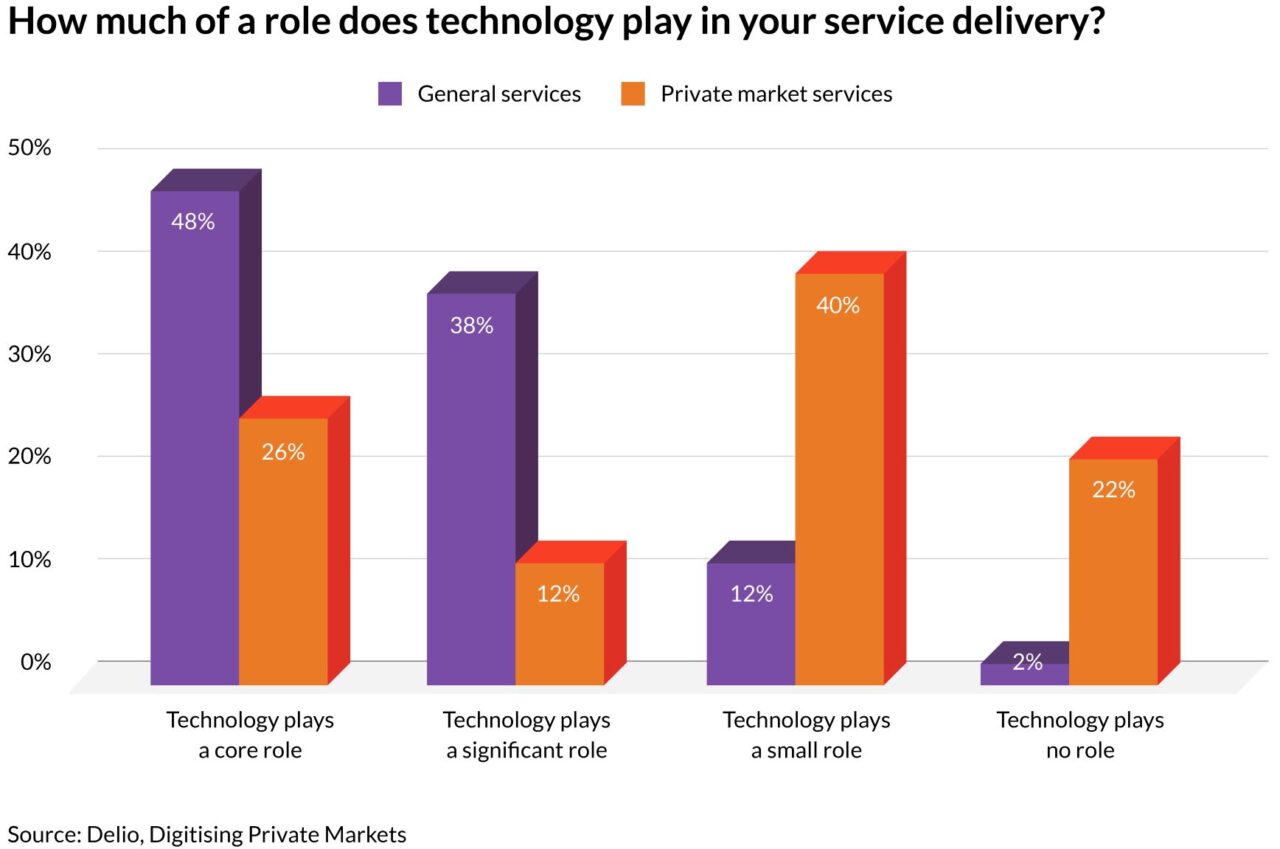Wealth managers must urgently increase their use of technology in offering private market investments or they risk being left behind by their competitors in less than five years.
The latest research report, ‘Digitising Private Markets’, from leading fintech firm Delio, shows that financial institutions’ adoption of digital tools across their operations has increased substantially as a result of Covid-19 this year. But many firms have been slow to accelerate their use of technology to deliver private markets services, despite recognising the improvements it could make to back-office organisation and regulatory compliance, not to mention enhancing client services. Delaying adoption of a digital strategy could leave firms trailing behind competitors within five years, according to Delio CEO and co-founder Gareth Lewis.
Gareth Lewis said: “Any firm that is serious about providing a complete wealth management service to their clients, needs to deliver a holistic private markets solution. Technology will be fundamental to the delivery of these services and needs to be implemented across the board sooner rather than later. Firms that fail to act quickly face losing ground and potential new clients to more tech-savvy competitors.
“While I understand that client relationships are still vital in this area, companies can’t become complacent. We live in a more instantly-connected world and customers – especially new clients who are more likely to have been entrepreneurial as they generated their wealth – want more digital access to their finances than ever before. It’s time to take an omnichannel approach that combines the best elements of technology and personal advice; this will deliver a market-leading approach.”

Providing clients with access to private markets has been a challenge for many financial institutions, due to the difficulties in scaling a part of their business that is operationally complex to deliver, requires strict regulatory governance and has traditionally been driven by personal relationships between client and adviser. It is one of the reasons many institutions only started to develop a private markets solution in the last 12-18 months.
However, better use of technology can help firms to deal with each of these hurdles more efficiently, providing access to a market that has consistently outperformed publicly listed investments over the last decade. McKinsey’s most recent Private Markets Review highlighted that the value of private assets under management had grown by $4tn or 170% in the last ten years, compared to 100% growth in global public assets over the same period.
The difficulties presented by the international lockdowns associated with Covid-19 has meant that 86% of firms report that they have accelerated their digital adoption this year, with 70% making quicker decisions on technology projects specifically.
Yet, a significant minority of organisations believe that digitisation will not necessarily play a prominent role as we begin to adapt to the ‘next normal’. More than a third of firms (35%) believe that they will still rely on traditional client engagement strategies in the short to medium term.
Having developed private markets solutions for more than 70 international institutions over the last five years, Delio firmly believes that technology can add significant value at both an organisational and client level.
Gareth Lewis added: “Client relationships will still be at the forefront of any wealth management proposition, there is no question about that. However, I also believe that technology can enhance how advisers build relationships with their clients. If I had an investment opportunity that I wanted to pitch to 50 clients, why wouldn’t I want to share that information digitally beforehand to gauge their appetite? Failing to accept that busy clients want to be able to access data at any time, no matter where they are, is a potentially damaging mistake that could cost slow-moving companies dearly.”








